NCC Emerges Top 3 Best In Website Performance In 2025
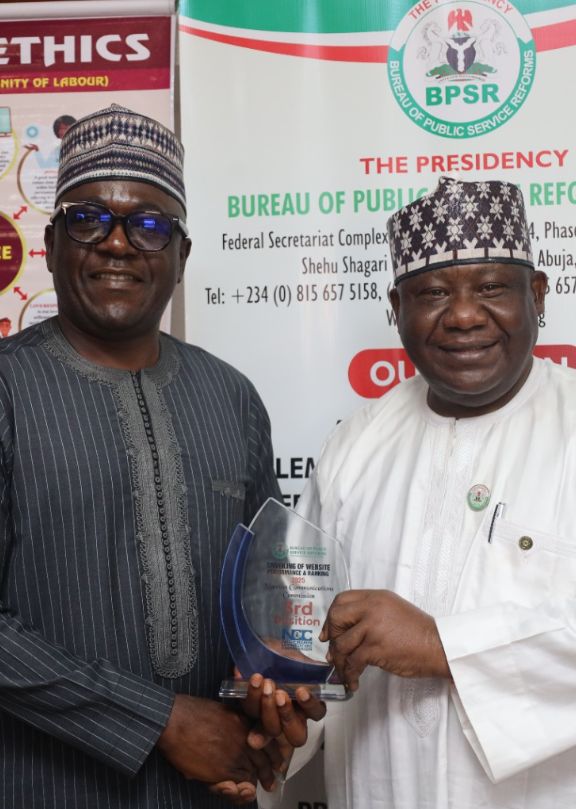
The Nigerian Communications Commission (NCC) has emerged the top three Ministries, Departments and Agencies (MDAs) of the Federal Government with the Best Ranking in Website Performance for 2025.
The ranking which was conducted by the Bureau of Public Service Reforms (BPSR) came today, December 23, barely three weeks after the telecom regulator was recognized as one of the top five best-performing Federal Government agencies for 2025 by the Presidential Enabling Business Environment Council (PEBEC) – a testament to the Commission’s consistency in investment in technology for ensuring efficient service delivery.
In the BPSR 2024/2025 scorecard ranking of agencies’ websites, the NCC came second in the ranking, trailing behind Galaxy Backbone Limited, which came first while the Nigeria Export Promotion Council (NEPC) clinched the third position, from a pool of 235 MDAs, whose website were evaluated.
Facts available showed that BPSR deployed 14 evaluation criteria in include MDA’s website compliance with .gov.ng domain name, appearance and aesthetics (look and feel) of the website, content, relevance to MDAs mandate/government policy and the website’ structure. Others include website’s responsiveness (device compatibility), security, load time, usability/ease of navigation, availability/uptime, functionality, interactivity, accessibility and capacity building.
The recognition was announced at the official release of Federal Government 2024/2025 Scorecard Ranking for MDAs’ Website held at the Federal Ministry of Finance Auditorium in Abuja while the award presentation took place at BPSR’s Office on today, December 23.
The award, which is an important index metric of the National e-Government Masterplan for determining the Nigeria e-Government Status, was received by the Commission in recognition of its commitment to maintaining a world-class website that enhances service delivery to the citizens.
Receiving the award on behalf of the Executive Vice Chairman of the NCC, Dr. Aminu Maida, the NCC’s Executive Commissioner, Technical Services, Abraham Oshadami, appreciated the BPSR for the recognition, describing the award as “another encouragement for the Commission to be a better public service institution leveraging digital platforms such as our web presence to enhance public service delivery to our various stakeholders, thereby implementing the Federal Government’s Ease of Doing Business policy direction.”
Presenting the award to the NCC, alongside other two agencies, BPSR’s Director-General, Dasuki Arabi commended the top three for their proactive decisions in maintaining world-class websites, which are compliant with the Federal Government’s policy direction in effective and efficient service delivery to the citizens.
According to the DG, the 2024/2025 MDA’s websites’ ranking represents a collective effort of federal public institutions in Nigeria to be transparent, accountable and open in governance, as well as a confirmation to align with global best practices in service delivery to the citizens.
Developed about six years ago, Arabi said as a result of the annual ranking, more public institutions have indicated readiness to embrace reforms, and align with the policy direction of the current administration’s Renewed Hope agenda on improve governance for effective service delivery, as introduced by President Bola Ahmed Tinubu.
“The ideals of harnessing and deploying technological tools for service delivery has become imperative following the COVID pandemic, and distortions of socio-economic system of nations, culminating in the evolution of competitiveness, cost effectiveness, and agile governance.
“As engine room of governance, it behoves on us in the public service to perform our statutory duties and we must put in place technological innovations and standardized websites to operate services as well as deliver service needs to citizens.”
The Scorecard exercise, he said, is part of the BPSR reform broader function of conducting research on reform implementation efforts and presenting ‘best practice’ models to the entire Public Service, and to among others, improve access to government information, facilitate seamless financial transaction, eliminate corruption and cyber theft, as well as facilitate access to government services.
Speaking on the rigorous nature of the exercise that produced the top three winners, the DG said: “in the past few weeks members of the Scorecard Jury drawn from inter-Ministerial Agencies, had worked tirelessly to mill websites of selected MDAs through a rigorous process of enduring criteria for the ranking and the outcome had also passed through a quality assurance mechanism to validate the outcome.”



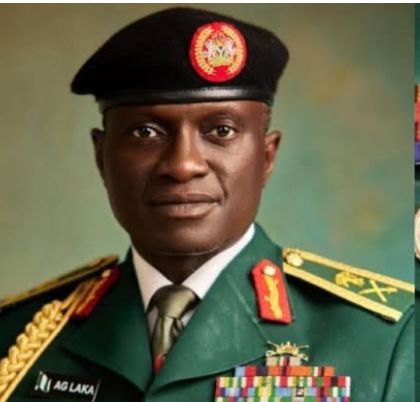
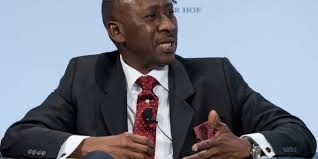
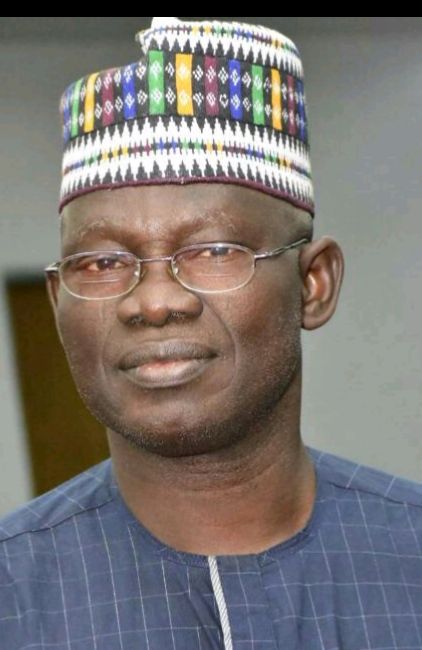

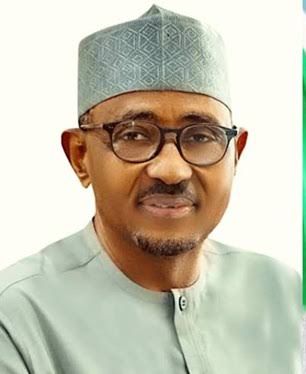




Aisha vs Buhari, Dangote vs Farouk And Gov Buni’s Development Stride In Yobe, By Hassan Gimba
Many things happened in Nigeria last week that will trend for a time. Among them were two weighty revelations, one of which led to two ‘juicy’ resignations. There was the revelation by Aisha Buhari, the late President Muhammadu Buhari’s wife, that the former president began locking his door to keep her out of his room. Reason? That he heard Villa rumours that she wanted to kill him. An old General fearing the woman who has been married to him for over 30 years!
The other was by Aliko Dangote, the richest Black man on Earth. He revealed that Farouk Ahmed, the Chief Executive Officer of the Nigerian Midstream and Downstream Petroleum Regulatory Authority (NMDPRA), has spent $5 million over six years on his four children’s education at Swiss secondary schools. Well, most likely, Nigerians might not have heard the Dangote allegation had Farouk not stepped on his toes, one way or the other. But then he once told us about the refineries in Malta, so it may not be because someone threatened to take the ice cream out of his mouth. Again, someone else might have used the information for “trade by barter,” so sleeping dogs will continue to lie. This revelation could have been the reason Farouk resigned. Whatever the case, may the elite continue to regale Nigerians with more revelations against one another.
And beyond those revelations is the ‘inconceivable’ and ‘impossible’ feat achieved by Yobe State a little earlier than these two revelations.
For those who do not know Yobe or the milestone achievements of His Excellency, Governor Mai Mala Buni in the state across various sectors, the fact that Yobe has emerged Nigeria’s number one state in Primary Health Care is unimaginable.
But it is neither inconceivable nor impossible for those who have been following the state since Buni became Governor.
Leadership newspaper of 15 December wrote: “Yobe State has once again distinguished itself as a national pacesetter in healthcare delivery, emerging as Nigeria’s leading state in Primary Health Care (PHC) following outstanding performances at the 2025 PHC Leadership Challenge Awards held in Abuja.
“Under the visionary leadership of Governor Mai Mala Buni, the state clinched both regional and national honours, reinforcing its growing reputation for excellence in grassroots healthcare.
“Yobe was named the Best Performing State in the North-East for the second consecutive year, winning the title in 2024 and 2025, with each award attracting a $500,000 prize.
“In an even more remarkable feat, the state also emerged as the Overall Best Performing State in Nigeria at the 2025 edition of the awards, securing an additional $700,000, bringing the total prize money earned by Yobe to $1.2 million, a clear testament to the state’s sustained investment and reforms in the health sector.”
The name Yobe used to be synonymous with “Number one from the rear,” but “Number one in front”? It is something new that began with the ascension of Governor Buni to the state’s governorship. How did he make Yobe a home of peace, an educational model whose students are now winning national and international accolades, an agricultural hub on the way to becoming the nation’s food basket, the best-performing state in the North-East, health-wise, for two years running, and the overall best in Nigeria this year?
What did he do to make the National Bureau of Statistics (NBS) report that the state is the most affordable place to live in Nigeria? According to the NBS reports of July 2025, “Yobe State is Nigeria’s most affordable state to live in, with low costs driven by falling inflation and successful agricultural programs boosting food security and local markets, making it relatively cheaper for housing and daily living compared to other states, especially around cities like Damaturu and Potiskum where business thrives, though security improvements are key to sustained affordability.”
When, on 29 May 2019, Honourable Mai Mala Buni became the seventh to be sworn in as Governor of Yobe State, but the fourth man to assume that office, he made specific declarations that many waited with bated breath to see come to fruition.
He announced a state of emergency on education and also promised to enhance agriculture, which is the mainstay of the people. He told the people of the state that “Yobe First” in everything, to empower indigenes, would be his mantra and that he would pursue peaceful coexistence and quality health delivery for the people.
Of course, without peace and good health, which farmer can farm and which student can learn anything? Or is there a teacher who can teach without them?
So, he first did all he could to establish peace in the state by providing security agencies with the resources they needed, thereby boosting their capacity to confront crime and criminals and, consequently, their morale.
He went further to make the political landscape level and fair, jettisoning the “by all means” politics hitherto known in the state in favour of a healthy contest between brothers who desire to contribute their quota for the benefit of the state. This was attested to by no less a personality than Adamu Maina Waziri. Waziri, a founding father of the Peoples Democratic Party (PDP) and now among the doyens of the African Democratic Congress (ADC), is one of Yobe’s greatest politicians and the state’s most prominent opposition figure since 1999.
Not only that, he was among those who worked to create the state, serving as the movement’s Secretary. Therefore, he should be familiar with the state’s political history, having been part of it from the beginning. And anybody who knows him knows that he is a very fair person. One of the attributes he shares with Buni is their capacity to be fair to people, even when they are not on the same page. And though he would fight any opponent, any day, including Buni, for political control of Yobe, he still once opined that the Governor has brought peace to Yobe politics, which used to be a “do or die” affair. Many attest that the hitherto volatility of politics in the state is now a thing of the past. Having put the peace process in place, he declared a state of emergency on education and launched an ambitious ₦25 billion appeal fund.
The aim was to take out-of-school children off the streets and provide high-quality education across the state. ₦10 billion was pledged, out of which about ₦2 billion was redeemed. He set up the Yobe Education Trust Fund, composed of eminent and trustworthy indigenes, under the chairmanship of Engineer Muhammad Abubakar, a seasoned civil servant who served as a Deputy Chief of Staff in the Presidency, and entrusted the funds to it.
So far, under his watch, new schools have been constructed, and hostels and classrooms in existing schools have been renovated. Laboratories and ICT centres have been built and equipped. His Yobe First promise ensured that, except when only outsiders had the technical expertise to perform a standard job, all contracts were executed by indigenes.
His vision led to the recruitment of over 4,000 education staff and the retraining of almost 30,000.
Dr.Hassan Gimba, Publisher and Editor-in-Chief of Neptune Prime wrote in from Abuja.